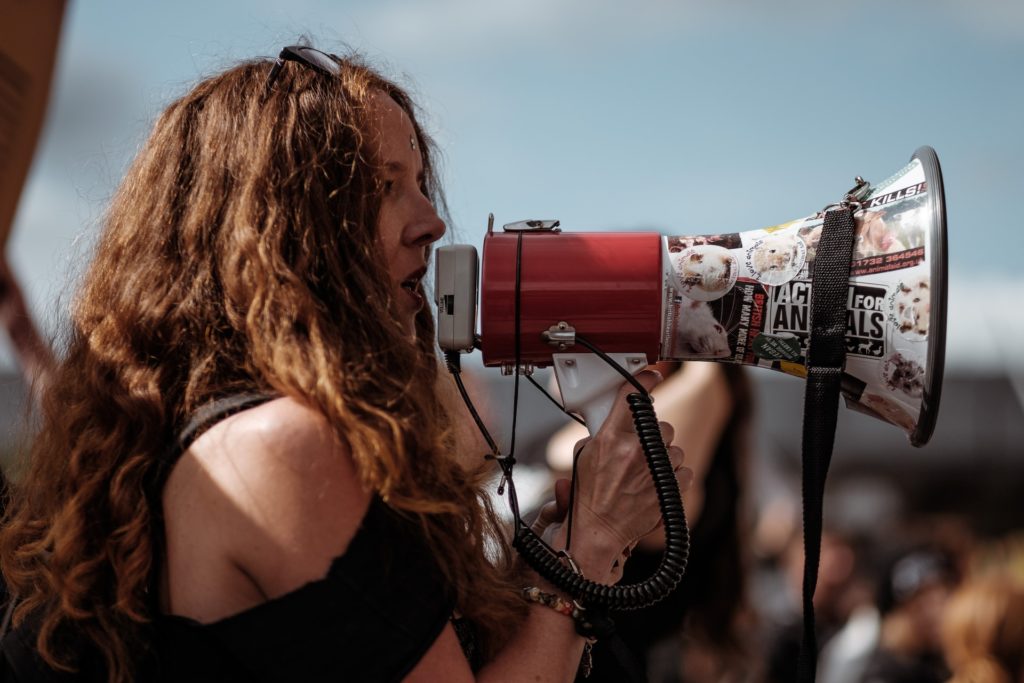A friend correctly defined community as “a group that has learned to overcome its individual differences.”
—M. Scott Peck, The Different Drum
If we apply the above definition, most communities are not communities. There are far more separating elements than we might think. True communities are known by their love for one another, as the Apostle John puts it in one of his letters to the Church.
What we see today are usually pseudo-communities. Pseudo-communities work because they block out anything that might threaten belonging.
Allow me to illustrate, with an example from my own church.
The Setting
It’s Friday evening, and it’s time for church once again. The small crowd of usually six to eight people comes mostly out of conviction—that is, out of the conviction that they have to be in church when the congregation puts on any event.
There’s the pastor and his wife; they have no choice. I myself lead that evening; otherwise, quite honestly, I would only be here out of a sense of duty, too. Because that’s what leaders are expected to do. I don’t want to accuse Christina, my wife, of anything, but I also know that she often prefers not to go out into the dark and cold of the evening. And then there is that grandmother, this faithful soul that attends every activity. Another woman comes because she never comes on Sundays. She wants it that way because Sunday is the day she can fully concentrate on her art as a painter. Finally, there is that older lady. I always feel relief when I see her. She likes to be challenged.
Overall, it’s a not-very-colorful crowd with an average age well above sixty. With my 58 years, I’m the baby.
Again and again, I remind myself of the fact that it’s Friday evening. All these people have had a hard week and are just looking forward to a relaxed evening among like-minded people.
But then I ask myself: if not on Bible study night, then when? When is it time to cross boundaries and go further in our faith?
All these people have had a hard week and are just looking forward to a relaxed evening among like-minded people. But if not on Bible study night, then when? When is it time to cross boundaries?
The Church and Primary Integration
Our Friday nights are always structured the same way: a simple worship with a few songs, the obligatory offering, a short message of a few minutes, and then a discussion that drags on, never getting at what is in any of these individuals’ hearts, minds, or souls. This happens because the Church has trained us, over two millennia, to listen and obey.
The Church believes that there is a class of people who have a deeper insight, a greater understanding, indeed a mandate from God to guide and teach the others. To teach what? The absolute truth, of course.
In this way, for those who will accept it, the church offers its members a beautiful primary integration, to use a term from Kazimierz Dabrowski’s theory of positive disintegration (TPD). Allow me to explain a bit: according to Dabrowski, there are three factors that go into making us who we are; the first factor is essentially our nature while the second is the nurture we receive from our families, peers, and culture. The third factor, which this magazine has summarized as “authentic conscience,” emerges in some people to make them question the influence of the first and second factors. But if you are leading your life in such a way that you can blithely follow where the first and second factors lead you, then, according to TPD, you are in a state of primary integration. Another word from TPD for this is negative adjustment.
The leadership of the church, tradition, and doctrine all provide such a strong second factor influence that the average community member has no need to deal with all the complicated, confusing things about the Bible. The members reinforce each other to just believe. This way, it is clear what goes and what does not go, what is expected of us, and what we must not allow ourselves to do.
The Rules and Taboos that Prevent True Fellowship
And that leads us to our topic: taboos and rules that prevent true fellowship. Let me give you an example.
One Friday evening, I had just provided the basis for reinterpreting every occurrence of sin and repentance in the Bible from the Greek. In doing this, I had just broken one of the greatest taboos that existed in Christianity by posing this question: What if the Good News was not about what we normally think it was?
To question the foundation of a community—that’s a big deal.
And yet, the reaction was anticlimactic. Disappointing. A word from the pastor in the sense of “but it is written that it is all about sin and repentance,” and it was clear: this taboo remained taboo.

We moved on to another topic, to everyone else’s relief. Someone had a trivial question to which she already knew the answer, and everyone was happy to confirm each other. Soon they moved to the cafeteria, and the conversation shifted to Tuesday’s cleaning at the daughter’s home and the increased cost of health insurance.
There were many such evenings. All of them ended with words of authority from the pastor and the inability of those present to express their thoughts freely.
There were many such evenings. All of them ended with words of authority from the pastor and the inability of those present to express their thoughts freely.
The main driver for this is the fear of no longer belonging. There are issues on which we are allowed to ask questions and make statements, but other topics, such as the Bible’s flawlessness, are clearly taboo. That’s why we don’t talk about it.
In this environment, unspoken boundaries—taboo subjects—establish themselves in a feel-good pseudo-community that never has to question itself. Therefore it never has to change anything.
Pseudo-Community
Pseudo-community is a term I’ve adopted from psychologist M. Scott Peck, who developed a four-stage model according to which community can be categorized—and better yet, developed.
The first phase is called pseudo-community. It is essentially an environment in which primary integration dominates. This phase can last a very long time, even years. In fact, most so-called communities never grow out of this phase. But in some cases, it can be very short, overcome within days or even hours. It all depends on the people involved and how aware and willing they are to move on to the next phase. (Remember Dabrowski’s third factor of development. It will play a role here.)
Members of pseudo-communities do not talk about things that might cause chaos. They understand the unwritten rules of behavior and know the taboo topics that they must never talk about. After all, doing so risks exclusion from the community they want so much to belong to. This leads to superficial relationships with narrow channels of communication. But at least they belong—and so most will settle for pseudo-communities.
Members of pseudo-communities know the taboo topics that may never be talked about. But at least they belong—and so most will settle for pseudo-communities.
Approved Topics in Pseudo-Communities
How are topics handled in pseudo-communities? There are three classes. The first and nicest class is the one into which all topics fall that are harmless, inoffensive, or irrelevant to the group. If I talk about one of these topics, I can’t really do anything wrong; at most, I can bore someone to death. The topics here are often non-committal and belong to the large class of small talk. The second class of topics includes everything that has been established by the community as correct—that is, official doctrine. There’s no danger here, as long as you accept the agreed upon definitions and explanations. The third class includes all the taboo subjects. This one is huge, because all the topics default to this one if I don’t otherwise know which class they fall into, until a leader otherwise sanctions them.
As a small exercise, think of a few topics. Let’s say vaccination, gun rights, and critical race theory. In which class do they fall for your community?
Consider also the special case of the instant community—that is, the community that springs up when strangers meet. It will always be a pseudo-community, because we know far too little about the others. Our first task is to find out what we are allowed to say and what we are not. That’s why we often stay in the safe but shallow waters of small talk.
While pseudo-community is all about avoiding conflict, true community resolves conflicts. The key question, then, is how do we reach that stage? How does a group of strangers become a true community?
Chaos
In M. Scott Peck’s model, the second stage is called chaos. When we finally let go of the self-imposed limits on what we are allowed to talk about, we all overflow with our favorite topics.
With that new-found freedom, we try to win others over, convince them of our opinions, help them, and even heal them of their wounds. The challenge here is that people with opposing opinions will all be doing this. That means we will get into wounding arguments, trying to convert the other to what has worked for us.

There are several strategies to end this phase:
Organization: Organization is order and thus the opposite of chaos, but it is also an enemy of true community. Imposing top-down doctrine means going back to the first phase to prevent future chaos episodes. In TPD, Dabrowski would describe this as returning to primary integration instead of progressing through the messy process of positive disintegration.
Elimination: We can choose to get rid of the rebels and reduce the community to those who believe. Again, we are back to a pseudo-community.
Acceptance: We can choose to endure this phase of chaos. At some point, people will let go of their need to superimpose themselves on others and really listen.
But why does this phase become necessary in the first place? We are coming out of a time when we had to hold back our opinions for many things. Moreover, pseudo-communities have taught us that for everything, there must be just one solution. And since we probably never tested the others, it must be ours.
Pseudo-communities have taught us that for everything, there must be just one solution. And since we probably never tested the others, it must be ours.
Chaos in Practice
Consider this dialogue from Peck’s The Different Drum.
“Well, the reason I came to this workshop is that I have this problem and I thought I could find a solution to it here.”
“I had that problem once,” a second member will reply. “This solved the problem.”
“Well, I tried that too,” the first member will reply, “but it didn’t solve anything.”
“When I acknowledged Jesus as my Lord and Savior,” a third member proclaims, “that problem, and every other problem I had, went away.”
“I’m sorry,” says the first member, “but this Jesus-Lord-and-Savior stuff just doesn’t grab me. It’s not my thing.”
“No,” says a fourth member. “It actually makes me want to puke when I hear it.”
“But it’s true,” says a fifth member.
What would you do if you were in charge of this workshop?
You could start by setting a few rules and declaring a few topics taboo:
“I want us to value each other during this discussion. I can understand that some have already decided that Jesus is the solution to all problems. We realize that the solution is not always immediate, but we must accept Jesus as the basis. This is what we will assume in the further course of this workshop. And I would like to refrain from using dirty language.”
Or you could go so far as to eliminate those who disagree with you:
“I now ask all those who maintain the nevertheless very childish conviction that Jesus is the solution to everything to leave the workshop. We will refund you part of the workshop fee.”
Or you could accept the chaos, and even participate in it, letting it run until it exhausts itself.
For those who are used to avoiding conflict, this might sound terrifying. But here is the advantage to accepting it: when you allow the chaos, the community finally addresses those taboo topics. It’s no longer about the fear of no longer belonging. It’s about freeing oneself from the taboo and being heard. M. Scott Peck has found that in almost all communities, when taboos are no longer enforced, the next stage is defined by members’ need to both convince and heal others. This more often than not becomes the defining attribute of this phase: to win people over, to evangelize.
In this phase of chaos, the new yardstick for evaluating others and their beliefs is no longer imposed from above, but by common sense, mediocracy, one’s own worldview—all of those subjective tools where individuals have free rein.
In this stage, communities risk succumbing to the misconception that chaos is regression. Pseudo-community, after all, is so much more peaceful and therefore worth striving for. But if there’s one thing we can say about chaos, it’s that it is much more honest and vital. That means, if you seek true community, it’s a necessary step on the way ahead.
The good news is that it’s not the end.
Emptiness
M. Scott Peck’s third stage is called emptiness. I empty myself of the need to be right, to win, or to compete. I listen to others in a way that allows something vital to emerge: understanding, knowledge, common ground, and maybe even new solutions. Where solutions are not at hand, we might learn to integrate paradoxes and be comfortable with this.
All this happens when we break down barriers to communication. These barriers include expectations, prejudices, ideologies, theology, preconceived solutions, and the need to heal, convert, fix, solve, explain, rescue, or control. For readers of this magazine, highly excitable intellects and emotions can make these barriers a particular challenge—but it’s a difficult process for absolutely everyone.
One reason this is a challenge is that we are often not even aware of many of our prejudices and preconceived notions. This makes it necessary to recognize them during a conversation, or to be open to having someone point them out to us. We see what is being asked for here. For most, this is an enormously large hurdle. The good news for those with intense intellects, imaginations, and emotions is that these traits, if properly harnessed, can help us recognize and meet this challenge.
We should also remember that many people will never be capable of more than pseudo-community because they are in primary integration. Recall that this primary integration is justified by egoistic drives and socio-cultural influences such as peer pressure. In a pseudo-community, most members’ motivations are simple: I submit to the group so that my need to belong is fulfilled.
But this community-building path can also be the trigger for positive disintegration, leading each member to the conscious development of an ideal and a hierarchy of values of one’s own.
This community-building path can also be the trigger for positive disintegration, leading each member to the conscious development of an ideal and a hierarchy of values of one’s own.
But we obviously don’t want to stop with emptiness, in the midst of a positive disintegration. So what comes next?
True Community
We progress to M. Scott Peck’s final stage, true community, when we understand true community—and behave in a way that creates it. Finally, in a true community, people can express their genuine concerns and their authentic joy without fear that someone will silence them.
Will there always be harmony in a true community? Let’s listen to M. Scott Peck, from his book The Different Drum: Community-Making and Peace:
The overall purpose of human communication is—or should be—reconciliation. It should ultimately serve to lower or remove the walls and barriers of misunderstanding that unduly separate us human beings one from another. The word “ultimately” is important. Confrontational, even angry communication is sometimes necessary to bring into focus the clear reality of those barriers before they can be knocked down. In the process of community-building, for instance, individual differences must first be allowed to surface and be fought over so that the group can ultimately learn to accept, celebrate, and thereby transcend them.
There is no answer to the question what is next. We may have reached our goal, or we may go on to tackle the tasks we were assigned—the reasons we became a community in the first place. Whichever we choose, we have established, even if only for a short while, a place of trust and healing.

If a community is permanent, then there is always a danger of falling back into chaos or pseudo-community. The work never stops.
True community requires openness, trust, patience and maturity, especially by leadership. It does help when people are willing to look at themselves. In addition, there are many tools that will help communication. Let me introduce you to one of them.
Rule Omega
It’s called Rule Omega, and here’s how it works.
When you say something that seems ridiculous or wrong to me, I first assume that I might have misunderstood or missed something. So I ask questions, intended not to challenge but to clarify. I thus increase the chance that I have really understood what you are saying, rather than simply disagreeing in a reactive way.
That’s all there is to it—though you may find it simpler to explain than to practice.
Rule Omega is an exercise in regulating one’s own emotions and strengthening one’s own intellect—and also a tool to help a community member who is feeling emotionally dysregulated or intellectually unheard to regulate and engage. In this way, it can contribute to a practice of what Dabrowski called subject-object in oneself.
Rule Omega is an exercise in regulating one’s own emotions and strengthening one’s own intellect—and also a tool to help a community member who is feeling emotionally dysregulated or intellectually unheard to regulate and engage.
If we could just assume that there is some truth, some signal in what the other person is saying, and look for that signal, we could gain a great deal. Each additional question would eliminate some of the noise and bring the signal a step closer to the forefront. This allows for unfinished thoughts to be spoken and taboo topics to be addressed.
True communities are well worth the work and truly needed in these times. M. Scott Peck has given us this process to go forward in his book The Different Drum that I painted a rough sketch of in this text. I warmly recommend the book.
In your own search for true community, you might start with a simple question: What is most important to you—to fit in, to be heard, to let go, or to have found a home and truly belong?
Header image courtesy Monkey Business Images / Shutterstock




